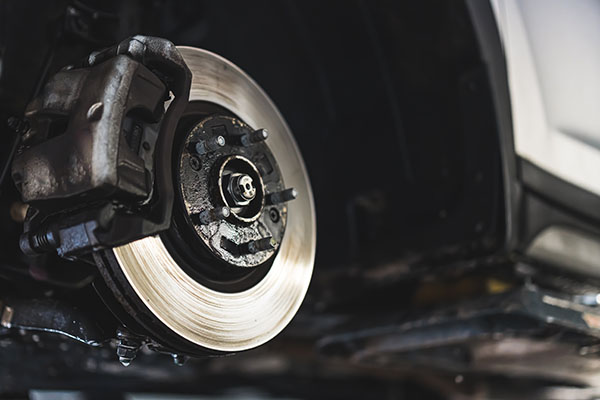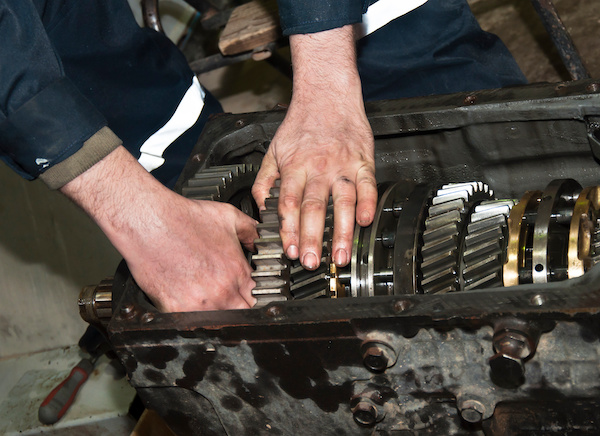Posted on 12/21/2023

You hit the brakes, but something feels off. The unsettling vibration, the unusual noise – could it be your rotors? In the world of cars, bent or damaged rotors can pose a serious threat to both your vehicle's performance and your safety. Let's delve into the nuances and unveil the five signs that might indicate your rotors are in distress. Vibrating During Braking One of the earliest indicators of rotor trouble is a noticeable shuddering or vibration when applying the brakes. If you feel an unsettling jiggle through the steering wheel or the entire vehicle, it's time to consider the state of your rotors. This shuddering sensation is often a result of uneven rotor surfaces due to warping or bending. Screeching and Squeaking Noises Your car communicates with you, and unusual noises are its distress signals. If you hear high-pitched screeches or persistent squeaking when you brake, it's likely your rotors crying out for attentio ... read more
Posted on 11/27/2023
.jpeg)
As life whirls around us, brimming with errands, adventures, and unforeseen circumstances, we all crave that steadfast companion in the form of a vehicle. An SUV that not only pledges allegiance to our day-to-day demands but also whispers promises of untold efficiency. Today's article is for those who refuse to compromise and who seek to tread the fine line between durability and grace. Let's venture into that realm and discover the SUV that rises above all in reliability and efficiency. The Most Reliable & Efficient SUV on the Market After meticulous research, expert testimonies, and consumer feedback confluence, one SUV consistently emerges at the pinnacle of reliability and efficiency: The Toyota Highlander Hybrid. The Highlander's LegacyToyota has long been synonymous with reliability, and their Highlander Hybrid model upholds this reputation with aplomb. Its longevity i ... read more
Posted on 10/30/2023
.jpeg)
Immersing yourself in the world of high-performance engines unveils a realm where power meets precision and where adrenaline-pumping drives become a reality. At the heart of Chevrolet's Corvette lineup lies the formidable 6.2-liter Supercharged Small-Block LT5 V8 engine, a technological marvel that embodies the perfect fusion of raw power, meticulous engineering, and relentless performance. Join us as we go in deeper and see why this specific engine is considered the best, taking into account that it is pretty new in the lineup.Unveiling the LT5 V8 EngineThe 6.2-liter Supercharged V8, a product of Chevrolet's relentless pursuit of automotive excellence, represents the pinnacle of modern engineering prowess. With its supercharged induction system, advanced direct injection technology, and an aluminum block and cylinder heads, the LT5 V8 engine is designed to deliver an extraordinary level of power and performance that pushes ... read more
Posted on 9/27/2023

Imagine you're cruising down the road in your trusty ride, but you can't help but wonder if there's more to explore beyond the asphalt. That's where vehicle lifting comes into play. Rix Automotive is here to help you take a closer look at the reasons why many car enthusiasts choose to lift their vehicles and how it can transform your driving experience. 1. Off-Road Adventures One of the most common reasons for lifting your vehicle is to conquer off-road terrain with confidence. Whether you're into rock crawling, mudding, or simply exploring rugged trails, a lifted vehicle provides better ground clearance. This means you can tackle obstacles that might leave standard vehicles stuck in the mud. 2. Improved Visibility Another compelling reason to lift your vehicle is improved visibility. A higher vantage point offers a commanding view of the road ahead, enhancing safety and making it easier to spo ... read more
Posted on 8/30/2023

The car transmission is a complex and vital component that ensures proper gear shifting and optimal performance. Proper maintenance can significantly extend its lifespan, saving you from costly repairs. Here are some valuable tips to help you keep your transmission in top shape: 1. Regular Maintenance: Follow your vehicle manufacturer's recommended maintenance schedule. Regular transmission fluid changes help maintain proper lubrication and cooling, preventing wear and tear. 2. Use the Right Fluid: Always use the type of transmission fluid specified in your owner's manual. If you use the wrong fluid, it can lead to performance issues and premature wear. 3. Warm-Up Before Driving: Allow your engine to warm up for a few minutes before driving. This helps the transmission fluid reach its optimal operating temperature, ensuring smooth shifts. 4. Avoid Rapid Acceleration: Abrupt acceleration puts extra st ... read more